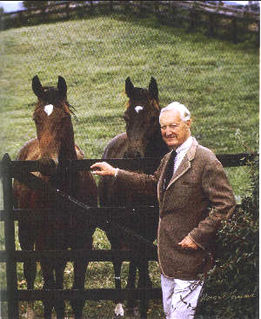A Quote by Daniel Starch
Two common conceptions with regard to advertising which are held by a considerable number of people are that enormously large sums of money are expended for it, and that much of this expenditure is an economic waste.
Quote Topics
Related Quotes
I regard large inherited wealth as a misfortune, which merely serves to dull men's faculties. A man who possesses great wealth should, therefore, allow only a small portion to descend to his relatives. Even if he has children, I consider it a mistake to hand over to them considerable sums of money beyond what is necessary for their education. To do so merely encourages laziness and impedes the healthy development of the individual's capacity to make an independent position for himself.
We tell the for-profit sector, 'Spend, spend, spend on advertising until the last dollar no longer produces a penny of value,' but we don't like to see our donations spent on advertising in charity. Our attitude is, 'Well look, if you can get the advertising donated (at four o'clock in the morning) I'm okay with that, but I don't want my donation spent on advertising, I want it to go to the needy,' as if the money invested in advertising could not bring in dramatically greater sums of money to serve the needy.
In order to get around the $500 cap, it's common knowledge that either potential candidates or public officials simply create these organizations, accumulate large sums of money which are then used in support of their campaign or to contribute to their campaign. They were trying to close that loophole.
A common measure of poverty is how much money you have in relation to other people - that is useful as far as it goes, but that excludes the case of, say, a hunter in the rainforest who has no money but is not poor. And there can be a number of people with money but who can consider themselves unwanted or invisible or estranged from society.
If cuts have to be made, the question then becomes which expenditure adds the least value? This is possibly what drives companies to reduce their advertising expenditure - simply because they do not understand its full value and especially as it is usually the single biggest investment on the balance sheet.
The EU might have become a large federal nation. But they would have had to do things differently. Number one, they would've had to make people feel like participants in a common project of autonomous law-giving. Much more political accountability, much more participation. That didn't happen, I think, because the movers and shakers were more concerned with economic union than political union.
I made a lot of money. I earned a lot of money with CNN and satellite and cable television. And you can't really spend large sums of money, intelligently, on buying things. So I thought the best thing I could do was put some of that money back to work - making an investment in the future of humanity.






































